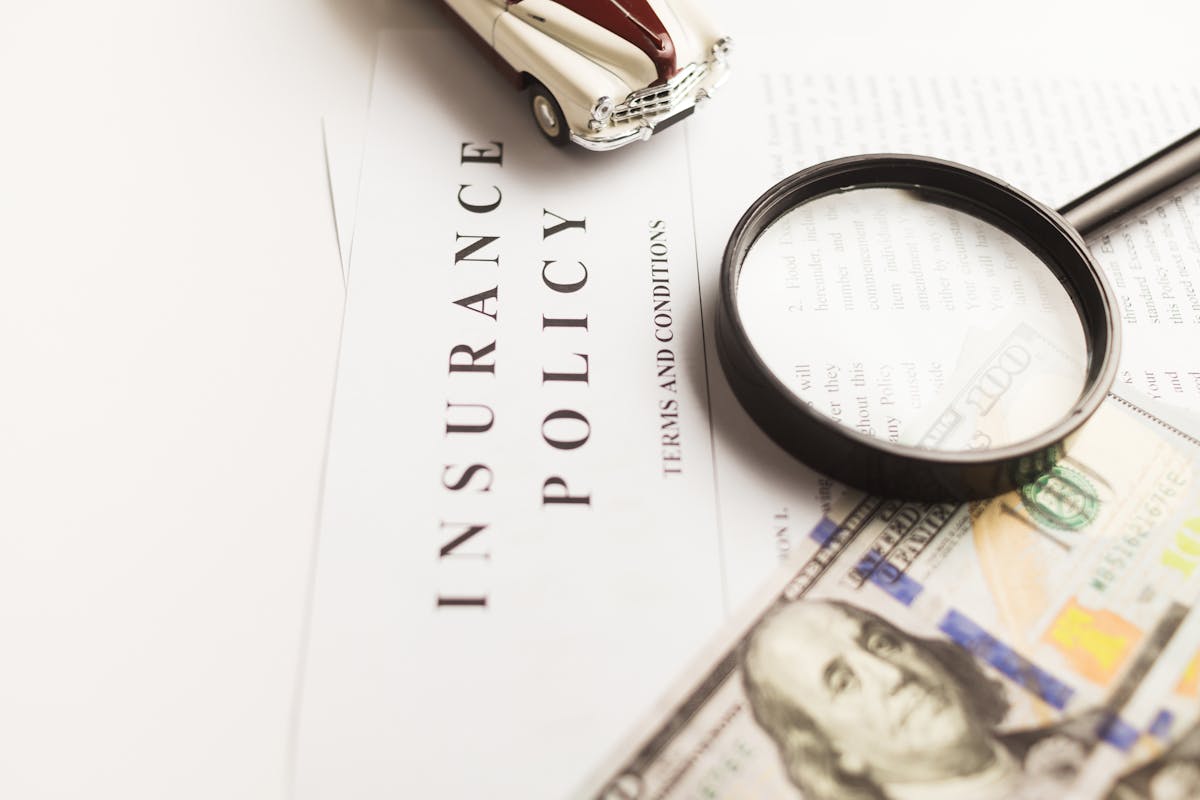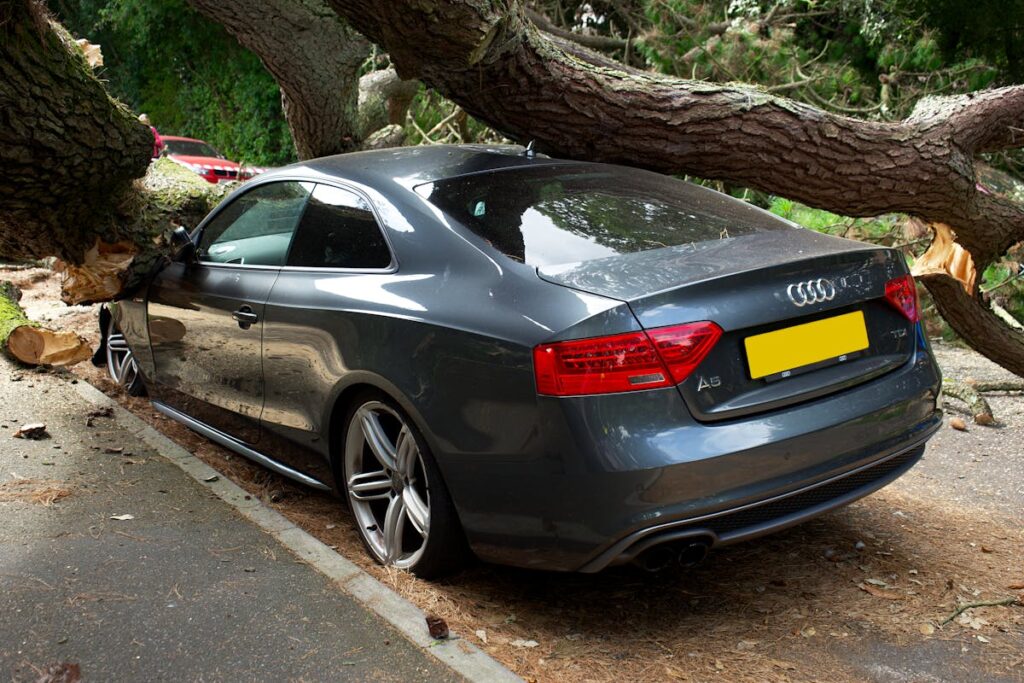In the aftermath of a car accident, dealing with insurance can be a challenging task, made more complicated when your claim is denied. This denial can be a significant setback, particularly when you’re grappling with personal injuries and vehicle damage. In California, certain legal avenues are available to contest this denial. Understanding why your claim was denied, reviewing your insurance policy, mobilizing relevant evidence, and seeking legal counsel are essential steps in this process. This discussion opens up a platform to explore these steps in depth, providing valuable insights on how to navigate such a complex scenario.
Key Takeaways
- Analyze the denial reason given by the insurer and cross-check it with your insurance policy’s terms and conditions.
- Seek legal advice to understand your rights and options if the denial seems unjust or unclear.
- Prepare necessary documentation and file a complaint with California’s Department of Insurance for a potential reversal.
- Consult an attorney to build a strong case with relevant evidence and understand California’s comparative negligence laws.
- Familiarize yourself with California’s legal processes, prepare for potential lawsuits, and maintain continuous communication with your legal representation.
Understanding California’s Insurance Laws
While California’s insurance laws may seem complex, understanding them is vital when dealing with car accident claims. In California, drivers are required by law to carry insurance coverage, specifically liability insurance, to cover the costs of damages or injuries caused to others in a crash. The state has established minimum liability limits for this insurance – $15,000 for injury or death to one person, $30,000 for injury or death to more than one person, and $5,000 for damage to property. Knowledge of these limits is essential, as it affects the compensation you can receive. It’s important to guarantee your insurance coverage adequately meets these liability limits, protecting you from significant financial risks.
Reasons Why Claims Get Denied
Despite diligent adherence to California’s insurance laws, one may find their car accident claim denied. This unexpected claim outcome can be attributed to a variety of common denial reasons. The insurance company may question the legitimacy of the accident or dispute whether the policyholder’s coverage extends to the circumstances surrounding the incident. In some cases, the claim could be denied due to allegations of contributory negligence, suggesting the policyholder shares some fault for the accident. Another reason could be delayed filing, where the claimant does not report the incident within the stipulated timeframe. Understanding these reasons can empower individuals to navigate the complexities of the claim process and prevent future denials.
Initial Steps After Claim Denial
Upon receiving a denial of your car accident claim in California, it’s essential to promptly initiate certain measures to protect your interests. Key among these is thoroughly understanding the reasons for the denial, which typically are elucidated in the insurer’s denial letter. Equally important is a detailed review of your insurance policy to guarantee that the insurer’s decision aligns with the terms and stipulations outlined therein.
Understanding Denial Reasons
Although it may be a challenging experience, having your car accident claim denied is not the end of the road. Understanding the reasons behind the denial is your first step towards a successful denial appeal. Insurers may refuse a claim due to various reasons such as policy exclusions, late filing, or alleged fraudulent activities. Gaining insight into these factors will not only strengthen your claim negotiation tactics but also help you to prevent similar issues in the future. It is essential to meticulously analyze the denial reason mentioned in the insurer’s letter. If it seems unclear or unjustified, consider seeking legal advice. Remember, comprehension of denial reasons is fundamental to dispute resolution and eventual claim approval.
Reviewing Insurance Policy
While it might seem intimidating, the first essential step after receiving a claim denial is to thoroughly review your insurance policy. This document details your coverage limits and policy exclusions, which are critical in understanding why your claim was denied. It provides a clear snapshot of what is covered, the extent of coverage and, importantly, what is not covered. It is possible that your claim was denied due to certain exclusions in your policy or because you’ve exceeded your coverage limits. Understanding these aspects of your policy can empower you to confidently dispute the denial if it is unwarranted or to revise your coverage in the future to better suit your needs. Your rights and obligations are embedded in these details, so review carefully.

Reviewing Your Insurance Policy
Before delving into the specifics of a denied car accident claim, it is imperative to thoroughly understand your insurance policy. This includes grasping the extent of your policy coverage and the claim limits. Adequate comprehension of these aspects can help you anticipate any potential obstacles in the claim process. The policy coverage itemizes the events and damages for which your insurance provider will compensate you. On the other hand, claim limits are the maximum amounts your insurer will pay for a single accident or injury. Knowing these vital details will arm you with the necessary knowledge to challenge a denied claim effectively. If you’re unsure, seek professional advice to guarantee your understanding is accurate.
Filing a Complaint With California’s DOI
What recourse do you have if your car accident claim is denied by your insurance company in California? One effective approach is to file a complaint with California’s Department of Insurance (DOI). This state entity is committed to ensuring insurance companies operate within the guidelines of the law and protect consumers’ rights.
The DOI provides clear filing procedures for lodging a complaint. These guidelines streamline the process and help expedite complaint resolution. When filing, be sure to include all relevant documentation, such as claim denial letters and related correspondence. The DOI will then investigate your claim denial and pursue it with your insurance company as necessary. This process could potentially lead to a reversal of the initial denial, providing the relief you need.
Seeking Legal Assistance
Maneuvering through the complexities of a denied car accident claim can often be overwhelming, even after lodging a complaint with the Department of Insurance. At this juncture, seeking legal assistance can be a prudent step. Consulting with a knowledgeable attorney can provide you with a better understanding of your rights and may assist in exploring all available consultation options. They can help you navigate through state laws, insurance policies, and intricate legal strategies that can be used in your favor. Remember, not all cases are the same, and an experienced attorney can customize a strategy based on the unique aspects of your situation. Consequently, engaging legal assistance can greatly increase your chances of winning a denied claim.
Preparing for a Potential Lawsuit
As one navigates the complex aftermath of a car accident claim denial in California, preparing for a potential lawsuit is a vital next step. This preparation is twofold: gathering relevant evidence to strengthen your case, and gaining an extensive understanding of California’s specific laws regarding such claims. Additionally, securing the assistance of an experienced lawyer can enhance your chances of a successful resolution.
Gathering Relevant Evidence
Maneuvering the labyrinth of litigation requires a strong armory of evidence, especially when you’re preparing for a potential car accident lawsuit in California. Evidence collection and documentation strategies are pivotal in building a persuasive case. Begin with the immediate aftermath of the accident: photographs, video footage, and witness statements offer powerful visual and narrative evidence. Next, gather police reports, medical records, and any correspondence with insurance companies. This documentation provides an authoritative, chronological record of the incident and its consequences. Don’t overlook smaller details, such as weather reports from the day of the accident. Each piece of evidence is a thread, and collectively, they weave a compelling narrative, strengthening your legal position.
Understanding California’s Laws
While gathering evidence is essential, understanding California’s specific laws is equally important when preparing for a potential lawsuit. California statutes follow a “pure comparative negligence” rule in car accident cases. This law allows a damaged party to recover even if they are 99% at fault. However, the recovery is reduced by their degree of fault. Understanding such liability considerations could greatly impact your claim. In addition, California imposes a two-year statute of limitations for personal injury claims. Missing this deadline could bar you from receiving any compensation. Therefore, having a clear grasp of these laws is vital. It not only empowers you during claim negotiations but also sets realistic expectations for potential lawsuit outcomes.
Hiring an Experienced Lawyer
Having navigated California’s complex legal landscape, the next vital step in preparing for a potential lawsuit is securing the representation of a seasoned lawyer. An experienced lawyer with solid qualifications can make a significant difference to your case. They possess in-depth knowledge of the state’s legal intricacies, understand the process of appealing denied claims, and have the skill set to effectively argue your case. They can also provide a thorough case evaluation, identifying strengths and potential weaknesses. This evaluation can inform the development of a robust strategy tailored to your unique situation. Hiring an experienced lawyer consequently enhances your chances of a successful lawsuit, ensuring your rights are protected and your claim is given the attention it deserves.
Frequently Asked Questions
What if the Other Driver Is Uninsured or Underinsured in California?
In California, if the other driver is uninsured or underinsured, your own uninsured/underinsured motorist coverage can compensate for damages, assuming it’s included in your policy. Consult with a legal professional to understand your options.
Can a Pre-Existing Condition Affect My Car Accident Claim?
Yes, a pre-existing condition can impact your car accident claim in California. However, proper claim documentation can help differentiate new injuries from pre-existing ones, ensuring your rights to compensation are not unjustly diminished.
How Long Does It Typically Take to Resolve a Denied Claim?
The claim resolution timeline for a denied claim varies depending on the complexity of the case. However, with the proper appeal process steps, it generally takes between three to six months to reach a resolution.
What Are the Implications of a Denied Claim on My Future Insurance Premiums?
A denied claim can potentially impact your future premiums, as insurers often increase rates after accidents. However, it’s not an absolute rule, and factors like your driving history and claim frequency also influence premium adjustments.
Can I Still Get Compensation if I Was Partially at Fault for the Accident?
Yes, in California, you can still receive compensation even if partially at fault due to the principle of comparative negligence. Your compensation may however be reduced proportionally by your degree of fault.

